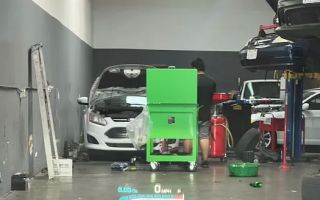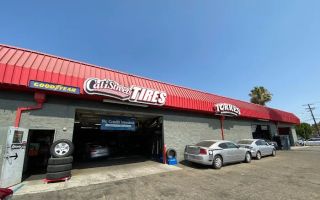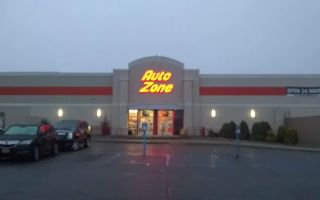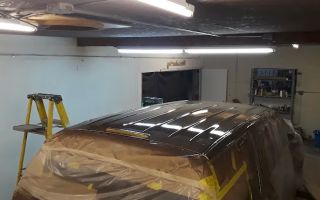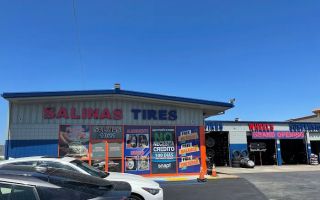I still remember the first time I experienced the terrifying moment of a blowout. It was a sunny afternoon, and I was cruising down the highway, listening to my favorite tunes when suddenly, I heard a loud pop. My heart raced as the car swerved slightly to the right. Thankfully, I was able to regain control and pull over safely, but the cause of the incident had me worried – my tire was under-inflated.
Under-inflated tires are a silent danger that many drivers overlook. I learned the hard way how critical it is to maintain proper tire pressure, not just for performance, but for safety. The problem with low tire pressure isn’t always immediately apparent; you don’t always see a flat tire or notice a significant issue until it’s too late. That’s when the risk of a sudden blowout becomes a very real threat.
1. What Exactly Happens When Tires Are Under-Inflated?
Under-inflation occurs when there is too little air in the tire, causing the tire pressure to fall below the recommended levels set by the manufacturer. This can happen for various reasons, such as small punctures, leaks, or simply not checking tire pressure regularly. When a tire is under-inflated, it doesn’t perform optimally. The tire’s surface area in contact with the road increases, which causes more friction. This added friction generates heat, which can lead to tire failure.
2. The Role of Heat in Tire Blowouts
Heat is a significant contributor to tire blowouts, especially when tires are under-inflated. The more a tire flexes, the more heat it generates. With under-inflated tires, the rubber becomes more flexible and less able to handle the stresses of the road. This increased heat weakens the tire's structure, making it more prone to a sudden rupture. During my experience, I later realized that if I had noticed the gradual deflation of my tire, the blowout might have been avoided.
3. Tire Pressure and Its Impact on Vehicle Safety
The role of tire pressure in vehicle safety cannot be overstated. Low tire pressure affects the vehicle’s handling and braking capabilities. When a tire is under-inflated, it becomes more difficult to maintain control of the vehicle, especially when navigating curves or sudden maneuvers. This can increase the likelihood of accidents. As I reflected on my own experience, I understood how important it is to keep tire pressure at the manufacturer-recommended levels. If I had been more vigilant about checking my tire pressure, I could have prevented a potentially dangerous situation.
4. How Does Under-Inflation Lead to Sudden Blowouts?
One of the scariest aspects of under-inflated tires is the risk of sudden blowouts. A blowout typically happens when a tire is subjected to excessive stress, often triggered by heat build-up, sharp objects on the road, or even the simple act of turning a corner too quickly. Under-inflated tires are more susceptible to these stresses because their flexibility and temperature regulation are compromised. A small puncture or road debris that might otherwise go unnoticed can cause a catastrophic failure when the tire is under-inflated.
5. The Dangers of Under-Inflated Tires in Different Conditions
Driving on under-inflated tires isn’t just dangerous on highways or at high speeds. Even in low-speed city driving or wet weather, low tire pressure increases the risk of accidents. On wet roads, for instance, under-inflated tires lose their ability to maintain traction. This can result in hydroplaning or reduced braking efficiency. I remember once driving through a light rain, and despite my attempts to brake, my car slid a bit more than usual. I later realized that my tire pressure was low, and that could have been a contributing factor to the loss of control.
6. How Can I Prevent Under-Inflation from Causing Blowouts?
Preventing under-inflation from causing a blowout is relatively simple but requires consistency and attention to detail. One of the most effective ways to ensure your tires remain properly inflated is to check the tire pressure regularly. I’ve made it a habit now to check my tire pressure at least once a month and before any long trip. Most gas stations have air pumps that can help you top off your tires, but investing in a tire pressure gauge can give you more precise readings.
Another way to avoid the dangers of under-inflation is to install a Tire Pressure Monitoring System (TPMS). Many modern vehicles come equipped with this system, which alerts you when a tire’s pressure drops below the recommended level. This has been a life-saver for me, as it’s a constant reminder to keep my tires in check. If you don’t have a TPMS, I highly recommend getting one installed or keeping a close eye on your tire pressure with manual gauges.
7. The Importance of Regular Tire Maintenance
Regular tire maintenance is essential for overall vehicle safety. It’s not just about tire pressure – you also need to check for any visible signs of wear, cracks, or bulges in the tires. These issues can also contribute to tire failure, especially when combined with under-inflation. I’ve learned that rotating my tires regularly and ensuring they are aligned properly can help distribute wear more evenly and prolong their lifespan. Additionally, balancing your tires properly ensures that they wear out at the same rate, reducing the risk of a blowout caused by uneven wear.
8. The Risks of Driving on Worn-Out Tires
As tires age, the rubber becomes more brittle and loses its ability to grip the road. If your tires are old and under-inflated, the chances of a blowout increase dramatically. Even though I always make sure to check my tire pressure, I also make sure that I don’t drive on tires that are beyond their recommended lifespan. Tires wear out with time, and it’s important to replace them before they become a hazard.
9. What to Do If You Experience a Tire Blowout
If you ever find yourself in the unfortunate situation of experiencing a blowout, staying calm is key. First, try to maintain control of the vehicle by keeping both hands on the steering wheel and gently steering straight. Avoid slamming on the brakes, as this can cause the vehicle to skid. Gradually reduce speed and pull over to a safe area. Once safely stopped, turn on your hazard lights and assess the damage. If you can’t fix the tire yourself, contact a towing company for assistance. If you’re in need of help, services like Rescue & Towing can provide reliable roadside assistance.
Driving with under-inflated tires can be a deadly risk that many drivers underestimate. After experiencing a blowout myself, I now take tire maintenance seriously. By regularly checking tire pressure, keeping an eye on tire condition, and addressing any issues promptly, I’ve been able to avoid further incidents. Don’t wait for a blowout to remind you about the importance of tire care – keep your tires in top condition to ensure your safety and the safety of others on the road.


